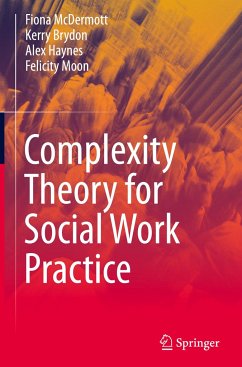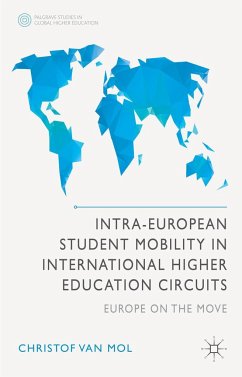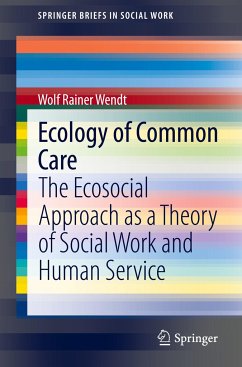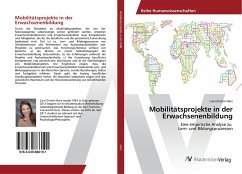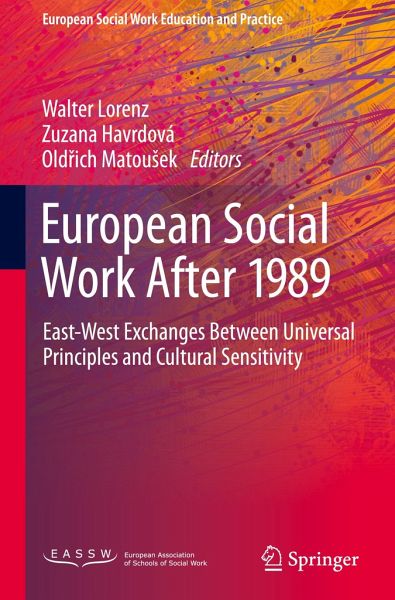
European Social Work After 1989
East-West Exchanges Between Universal Principles and Cultural Sensitivity
Herausgegeben: Lorenz, Walter; Havrdová, Zuzana; Matousek, Oldrich

PAYBACK Punkte
31 °P sammeln!
This book presents a unique analysis of the learning derived from East-West contacts in social work and reflects on the discipline's inalienable trans-national dimensions, of high actuality in the face of the re-emergence of nationalisms. The fundamental transformations in Europe subsequent to the revolutions of 1989 had a profound impact on social work in terms of raising sharply the profession's relationship with politics. The exchanges between western schools of social work and the emergent academic partner institutions in former Communist countries formed a valuable testing ground for the ...
This book presents a unique analysis of the learning derived from East-West contacts in social work and reflects on the discipline's inalienable trans-national dimensions, of high actuality in the face of the re-emergence of nationalisms. The fundamental transformations in Europe subsequent to the revolutions of 1989 had a profound impact on social work in terms of raising sharply the profession's relationship with politics. The exchanges between western schools of social work and the emergent academic partner institutions in former Communist countries formed a valuable testing ground for the essential principles and competences of social work in terms of their universal scientific basis on the one hand and their regard for cultural and national values and contexts on the other.
The chapters in this contributed volume focus on lessons derived from fundamental social and political transformations, highlighted by East-West encounters and intra-national divisions, and thereby have important messages for mastering impending transformations in the light of the global COVID-19 health crisis. They demonstrate how cultural and social divisions can be addressed constructively with direct implications for training and practice in dramatically changing contexts:
Lithuanian social work's claim to professional autonomy vs. authoritarianism in popular and political culture Social work between civil society and the state - lessons for and from Hungary in a European contextWhen Europe's East, West, North and South meet: learning from cross-country collaboration in creating an international social work master programmeNordic-Baltic cooperation in social work researcher education: A Finnish perspective on the impact on scientific, historical and linguistic similarities and differencesIntra-national similarities and differences in social work and theirsignificance for developing European dimensions of research and educationSocial work, political conflict and European society: reflections from Northern Ireland
European Social Work After 1989: East-West Exchanges Between Universal Principles and Cultural Sensitivity is an invaluable resource for social work educators; social work practitioners confronted with national and international divisions; students of social work, of social administration and policy; and any policy researcher with a comparative focus.
The chapters in this contributed volume focus on lessons derived from fundamental social and political transformations, highlighted by East-West encounters and intra-national divisions, and thereby have important messages for mastering impending transformations in the light of the global COVID-19 health crisis. They demonstrate how cultural and social divisions can be addressed constructively with direct implications for training and practice in dramatically changing contexts:
Lithuanian social work's claim to professional autonomy vs. authoritarianism in popular and political culture Social work between civil society and the state - lessons for and from Hungary in a European contextWhen Europe's East, West, North and South meet: learning from cross-country collaboration in creating an international social work master programmeNordic-Baltic cooperation in social work researcher education: A Finnish perspective on the impact on scientific, historical and linguistic similarities and differencesIntra-national similarities and differences in social work and theirsignificance for developing European dimensions of research and educationSocial work, political conflict and European society: reflections from Northern Ireland
European Social Work After 1989: East-West Exchanges Between Universal Principles and Cultural Sensitivity is an invaluable resource for social work educators; social work practitioners confronted with national and international divisions; students of social work, of social administration and policy; and any policy researcher with a comparative focus.





